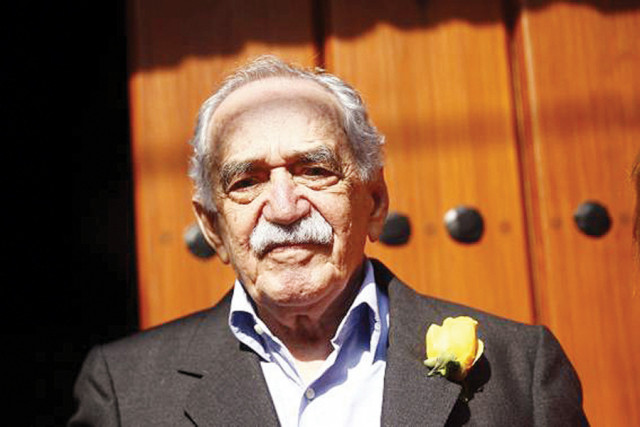Garcia Marquez: the master of magical realism
A prolific writer who started out as a newspaper reporter, Marquez’s masterpiece was One Hundred Years of Solitude.

Garcia Marquez died at his home in Mexico City. He had returned home from hospital last week after a bout of pneumonia.
Known affectionately to friends and fans as Gabo, Garcia Marquez was Latin America’s best-known and most beloved author and his books have sold in the tens of millions.
A prolific writer who started out as a newspaper reporter, Garcia Marquez’s masterpiece was One Hundred Years of Solitude, a dream-like, dynastic epic that helped him win the Nobel Prize for Literature in 1982.
At times comical and bawdy, and at others tragic, over 30 million copies of the novel were sold. It was published in dozens of languages and helped fuel a boom in Latin American fiction.
Tributes poured in following his death. “The world has lost one of its greatest visionary writers — and one of my favorites from the time I was young,” said US President Barack Obama.
“Your life, dear Gabo, will be remembered by all of us as a unique and singular gift, and as the most original story of all,” singer Shakira wrote on her website alongside a photograph of her hugging him.
Magic and reality
Garcia Marquez was one of the prime exponents of magical realism, a genre he described as embodying “myth, magic and other extraordinary phenomena.”
It was a turbulent period in much of Latin America, when chaos was often the norm and reality verged on the surreal, and magical realism struck a chord.
Although One Hundred Years of Solitude was his most popular creation, other classics from Garcia Marquez included Autumn of the Patriarch, Love in the Time of Cholera and Chronicle of a Death Foretold.
Politics, literary feud
Like many of his Latin American literary contemporaries, Garcia Marquez became increasingly involved in politics and flirted with communism.
He spent time in post-revolution Cuba and developed a close friendship with communist leader Fidel Castro, to whom he sent drafts of his books.
The United States banned Garcia Marquez from visiting for a decade after he set up the New York branch of communist Cuba’s official news agency and was accused of funding leftist guerrillas at home.
He once condemned the US war on drugs as “nothing more than an instrument of intervention in Latin America”, but became friends with former U.S. President Bill Clinton.
“He captured the pain and joy of our common humanity in settings both real and magical. I was honoured to be his friend and to know his great heart and brilliant mind for more than 20 years,” Clinton said on Thursday.
Published in The Express Tribune, April 19th, 2014.
Like Life & Style on Facebook, follow @ETLifeandStyle on Twitter for the latest in fashion, gossip and entertainment.



















COMMENTS
Comments are moderated and generally will be posted if they are on-topic and not abusive.
For more information, please see our Comments FAQ